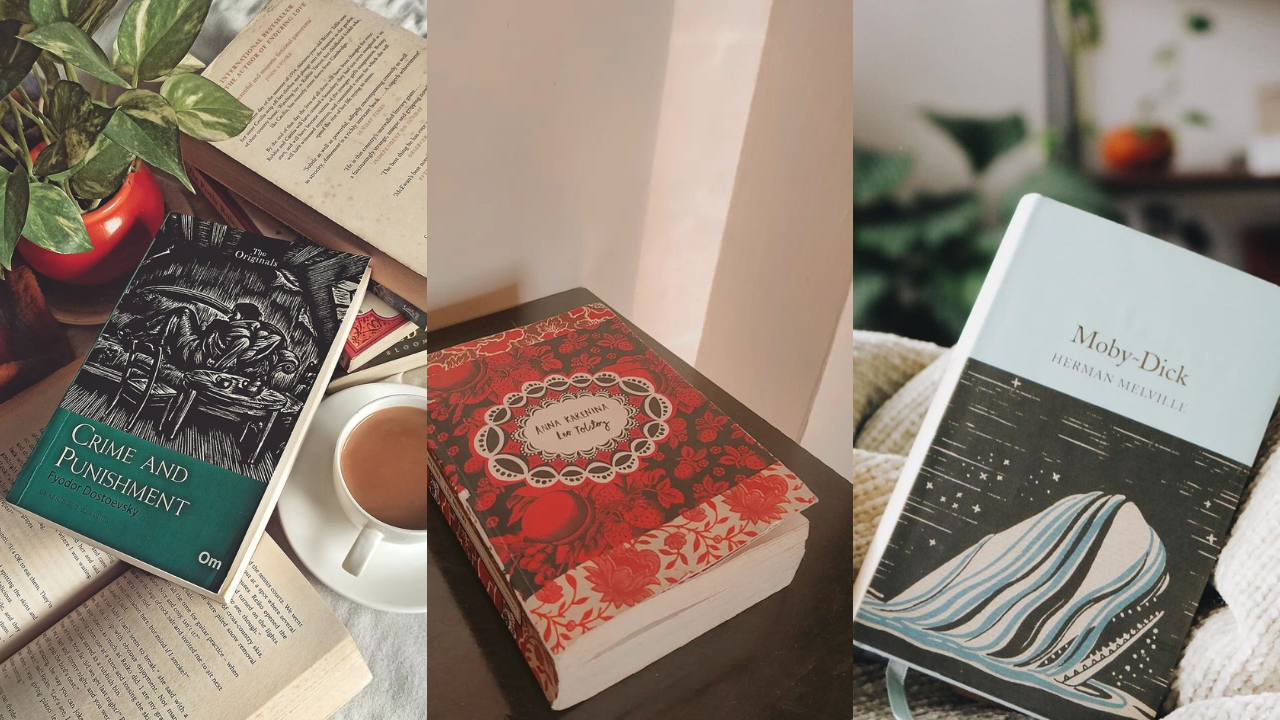
10 Iconic Last Lines in Classic Literature Novels (Picture Credit – Instagram)
The concluding lines of a novel frequently leave an indelible impression on readers, lingering long after the book has been closed. These final words can summarise the story, leave the reader with a poignant thought, or create a satisfying sense of closure. Many closing lines in great literature have become legendary, becoming almost as well-known as the works themselves. Here, we look at ten remarkable closing lines from classic literature works, diving into their meaning and the strong impact they’ve had on readers and literary history.
1. Moby-Dick by Herman Melville
“It was the devious-cruising Rachel, that in her retracing search after her missing children, only found another orphan.”
Melville’s epic story of passion and vengeance concludes with tremendous irony and tragedy. The concluding statement emphasises the novel’s recurring themes of loss and the inescapable nature of fate.
2. The Great Gatsby by F. Scott Fitzgerald
“So we beat on, boats against the current, borne back ceaselessly into the past.”
Fitzgerald’s ending is a moving reflection on the elusive character of the American Dream and the allure of the past. This statement perfectly encapsulates the novel’s study of aspiration, nostalgia, and disillusionment.
3. 1984 by George Orwell
“He loved Big Brother.”
4. Pride and Prejudice by Jane Austen
“With the Gardiners, they were always on the most intimate terms. Darcy, as well as Elizabeth, really loved them; and they were both ever sensible of the warmest gratitude towards the persons who, by bringing her into Derbyshire, had been the means of uniting them.”
Austen’s final sentences offer a traditional happy ending, expressing themes of love, thanks, and familial relationships. It evokes feelings of contentment and the enduring strength of relationships in the reader.
5. Anna Karenina by Leo Tolstoy
“But this is not the story of their lives. For the story of anyone’s life does not end. It is merely there where we leave it.”
Tolstoy’s closing thoughts in ‘Anna Karenina’ reflect on the cyclical nature of life and the arbitrary nature of narrative.
It alludes to the limitless intricacies of human experiences, leaving the reader wondering about the characters’ destinies after the pages are turned.
6. To Kill a Mockingbird by Harper Lee
“He would be there all night, and he would be there when Jem waked up in the morning.”
This statement finishes Harper Lee’s dramatic story with a sense of safety and abiding moral purity, as symbolised by Atticus Finch. It’s a heartening conclusion to a narrative full of injustice and racial hatred.
7. Gone with the Wind by Margaret Mitchell
“After all, tomorrow is another day.”
Scarlett O’Hara’s final comments in ‘Gone with the Wind’ reflect her tenacity and resolve. Despite the difficulties and losses she encounters, the statement portrays hope and an unwavering determination to persevere.
8. A Tale of Two Cities by Charles Dickens
“It is a far, far better thing that I do, than I have ever done; it is a far, far better rest that I go to than I have ever known.”
Dickens’ famous ending depicts a moment of ultimate sacrifice and redemption, providing a profound sense of human kindness in times of upheaval and misery.
9. Crime and Punishment by Fyodor Dostoevsky
“But here begins a new account—a new story—the story of a man’s gradual renewal, gradual rebirth, gradual transition from one world to another, of his initiation into a new unknown life.”
Dostoevsky’s final lines hint at salvation and the beginning of a moral and spiritual journey. It instils optimism in the reader about the protagonist’s future.
10. The Catcher in the Rye by J.D. Salinger
“Don’t ever tell anybody anything. If you do, you start missing everybody.”
The novel’s themes of isolation, alienation, and the intricacies of human interactions are encapsulated in Salinger’s closing words, delivered by Holden Caulfield. It makes readers think about the paradoxes of sharing and solitude.
Each of these final lines exemplifies literature’s enduring power. They not only conclude but also expand the stories, asking readers to consider and reflect long after the last page is turned. These phrases serve to remind us of
